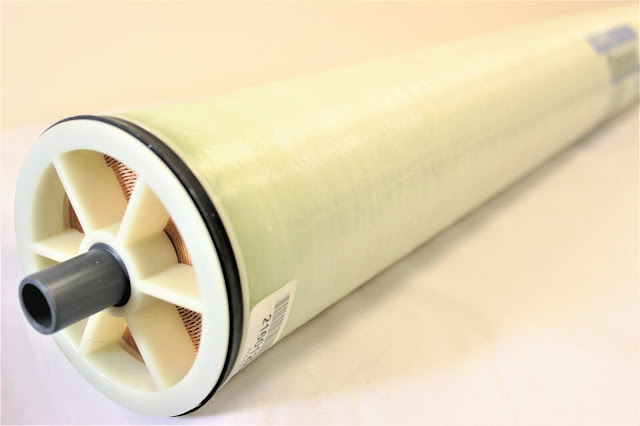Purifying Potential: Riding the Tide of the Global Reverse Osmosis Membrane Market
In the realm of water purification technologies, the keyword "reverse osmosis membrane" stands out as a transformative force. Its market dynamics are shaped by several key drivers, propelling its growth and evolution.
Global
Reverse Osmosis Membrane Market is estimated to be valued at USD 4.14 Bn in 2024 and is
expected to reach USD 8.11 Bn by
2031, exhibiting a compound annual growth rate (CAGR) of 10.1% from 2024 to
2031.
Market Drivers:
The global reverse osmosis membrane market is primarily
driven by the increasing demand for clean and potable water across various
sectors. Rapid industrialization and urbanization have led to heightened
concerns about water quality, stimulating the adoption of advanced water treatment
solutions. Additionally, stringent government regulations regarding water
safety and environmental conservation contribute to the market's expansion.
PEST Analysis:
A PEST analysis offers insights into the political,
economic, social, and technological factors influencing the reverse osmosis
membrane market. Politically, government initiatives promoting sustainable
water management practices bolster market growth. Economically, rising
investments in water infrastructure projects drive demand for reverse osmosis
membranes. Socially, growing awareness about the importance of clean water
fosters market acceptance. Moreover, technological advancements enhance the
efficiency and efficacy of reverse osmosis membrane systems, opening new
opportunities.
SWOT Analysis:
A SWOT analysis
reveals the strengths, weaknesses, opportunities, and threats within the global
reverse osmosis membrane market. Strengths lie in the technology's ability to
deliver high-quality water and its versatility across diverse applications.
Weaknesses may include high initial investment costs and energy requirements.
However, opportunities abound in emerging markets and innovations in membrane
materials. Threats such as competition from alternative water treatment methods
underscore the need for continuous innovation and market adaptation.
Segment Analysis:
Segmentation of the reverse osmosis membrane market unveils
distinct market niches and opportunities. Key segments include residential,
industrial, and municipal applications. Within these segments, factors such as
water quality requirements, capacity, and regulatory compliance dictate demand.
Moreover, niche applications in sectors like pharmaceuticals, food and
beverage, and desalination present specialized market segments with unique
challenges and opportunities.
Key Takeaways:
Amidst evolving market dynamics, several key takeaways
emerge for stakeholders in the reverse osmosis membrane market. Firstly, a
customer-centric approach focusing on providing tailored solutions is essential
for market success. Secondly, strategic partnerships and collaborations can
foster innovation and market penetration. Thirdly, continuous research and
development efforts are imperative to address emerging challenges and seize new
opportunities in the ever-changing market landscape.
Geographical Region:
The global reverse osmosis membrane market exhibits regional
variations influenced by factors such as water scarcity, industrialization
levels, and regulatory frameworks. Regions with arid climates and limited
freshwater resources, such as the Middle East and North Africa, witness high
demand for desalination technologies utilizing reverse osmosis membranes.
Conversely, regions with stringent environmental regulations, such as Europe
and North America, prioritize water treatment solutions to meet regulatory
standards. Emerging economies in Asia-Pacific present significant growth
opportunities due to rapid industrialization and urbanization driving demand
for water treatment solutions.



Comments
Post a Comment